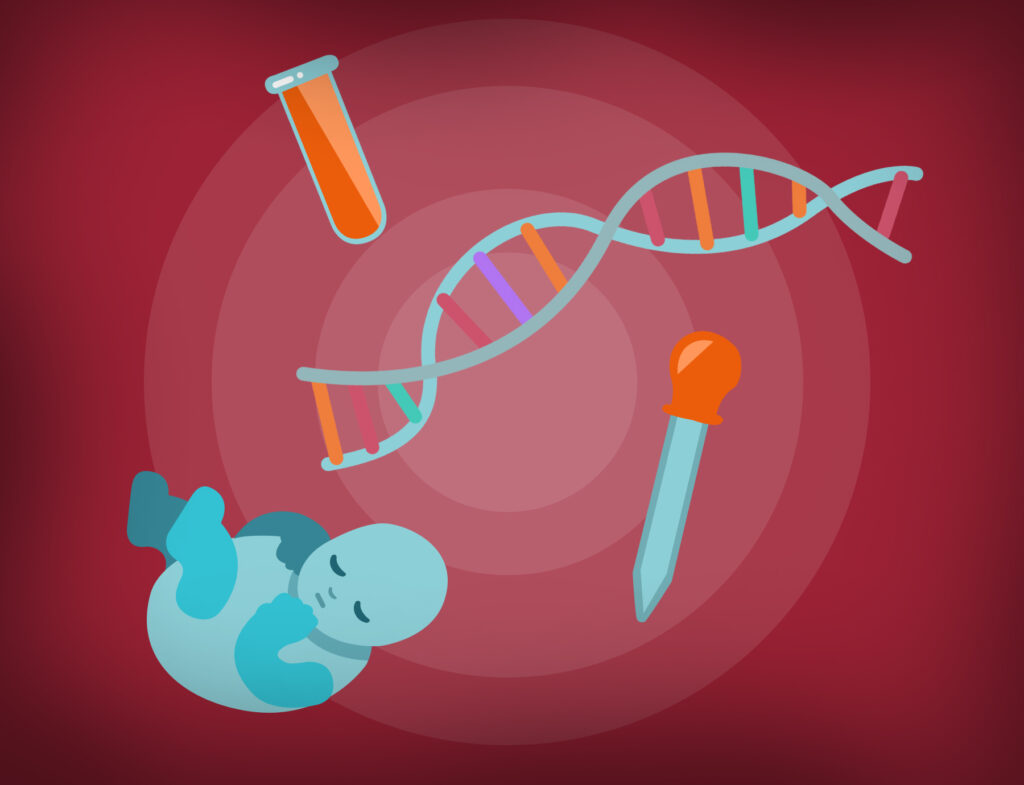New epigenetic research by DIGNITY and partners show how trauma from tortured mothers is transferred to their children
Trauma from torture and ill-treatment can be transferred from mother to child and is measurable in blood samples. This is the conclusion of an international research project carried out by scientists from Kosova, Denmark and Australia. The results were recently published in the scientific journal Epigenomics
This new research shows that children of mothers who have been victims of sexual violence or torture during the Kosovar war in the late 1990s, had abnormal level of the stress hormone cortisol, and epigenetic alterations to their DNA (DNA methylation).
What is the study about? With help from the researchers, we put together some answers.
What is epigenetics?
Epigenetic mechanisms are modification which can help regulate the way our genes function. They are essential processes in development and enable us to respond to the environment around us. Epigenetics is largely established in very early in life, during foetal development and the first few years of life, where biological processes are “set” in such a way to enable the individual to best respond to their environmental conditions. It has been shown for example, that children born to mother’s during a famine, will have hunger hormones suppressed and thus be better equipped to manage without a lot of food. Epigenetics is the science of how genes are ‘turned on and off’.
What is the project about?
The research project examined how a child’s epigenetics is affected by the fact that their mother has, prior to pregnancy, been exposed to sexual violence or torture and developed PTSD during pregnancy. The transgenerational effect of sexual trauma is examined for the first time in this project.
What did the researchers do?
The researchers interviewed 130 women with a mean age of 43 years (ranging from 30 to 59 years) who had experienced sexual violence or torture during the Kosovo war in the late 1990s when aged from 11 to 37 years of age. All women gave birth to at least one child after the war (not related to the sexual assault) and many were concerned that their child showed signs of aggressive behaviour or emotional problems. Of these women, 72 per cent reported that they were likely to have PTSD symptoms during their pregnancy and all of them have lifetime PTSD. The researchers collected blood samples from 120 of the youngest children born to each woman.
What were the results?
Nearly 25 per cent of the children have abnormal (too high or low) levels of cortisol. Cortisol is the major stress hormone which is triggered in response to major stress or trauma. A high cortisol level is a marker of heightened stress reactivity while a low cortisol level is associated with aggressiveness and anti-social personality. Children born to mothers with PTSD during pregnancy were more likely to have high cortisol levels and differential methylation at genes known to be involved in the stress response system, compared to children born to mothers without pregnancy PTSD. These genes have also been implicated in several psychiatric disorders
What is the next step?
The second phase of this research project will be to look closer at the same 120 children from Kosovo who will be examined before and after three months of family therapy intervention. The goal will be to determine whether family therapy can reverse some of the epigenetic changes observed in these children and bring their cortisol levels within a normal range.
Who is behind this?
The five researchers represent the Kosova Rehabilitation Centre for Torture Victims (KRCT), the Copenhagen University Hospital, DIGNITY and Monash University in Melbourne.





